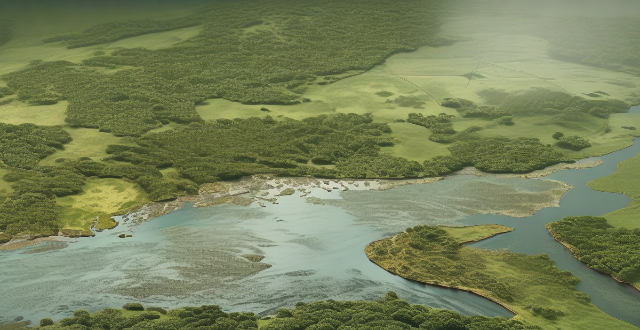Climate change has significantly impacted natural landscapes globally, including melting glaciers and ice sheets, altered precipitation patterns, increased extreme weather events, shifts in plant and animal distributions, and ocean acidification. These changes threaten ecosystems, wildlife, and human livelihoods dependent on natural resources. Urgent action is needed to reduce greenhouse gas emissions and mitigate these impacts.

Impact of Climate Change on Natural Landscapes
Climate change has had a profound impact on natural landscapes around the globe. The following are some of the ways in which climate change has affected these landscapes:
Melting Glaciers and Ice Sheets
One of the most visible effects of climate change is the melting of glaciers and ice sheets. This has led to rising sea levels, which in turn has caused coastal erosion and flooding in many areas. In addition, the loss of glaciers and ice sheets has also affected the availability of freshwater resources in many regions.
Changes in Precipitation Patterns
Climate change has also led to changes in precipitation patterns, with some areas experiencing more frequent and intense rainfall, while others face prolonged droughts. This has had a significant impact on ecosystems that rely on specific rainfall patterns for their survival. For example, forests may become more susceptible to wildfires during extended periods of drought.
Extreme Weather Events
Climate change has contributed to an increase in the frequency and severity of extreme weather events such as hurricanes, tornadoes, and heatwaves. These events can cause widespread damage to natural landscapes, including destruction of habitats and displacement of wildlife.
Changes in Plant and Animal Distributions
As temperatures rise, many plant and animal species are shifting their ranges towards cooler regions. This can lead to competition for resources and habitat loss for some species, while others may struggle to adapt to new environmental conditions. In addition, climate change can disrupt the timing of seasonal events such as flowering and migration, which can have cascading effects on entire ecosystems.
Ocean Acidification
The increased concentration of carbon dioxide in the atmosphere has led to ocean acidification, which can have severe consequences for marine ecosystems. Many marine organisms, such as coral reefs and shellfish, rely on calcium carbonate to build their shells and skeletons. As the ocean becomes more acidic, it becomes harder for these organisms to grow and survive.
In conclusion, climate change has had a significant impact on natural landscapes around the world. From melting glaciers and changing precipitation patterns to extreme weather events and ocean acidification, these effects are likely to continue unless urgent action is taken to reduce greenhouse gas emissions and mitigate the impacts of climate change.